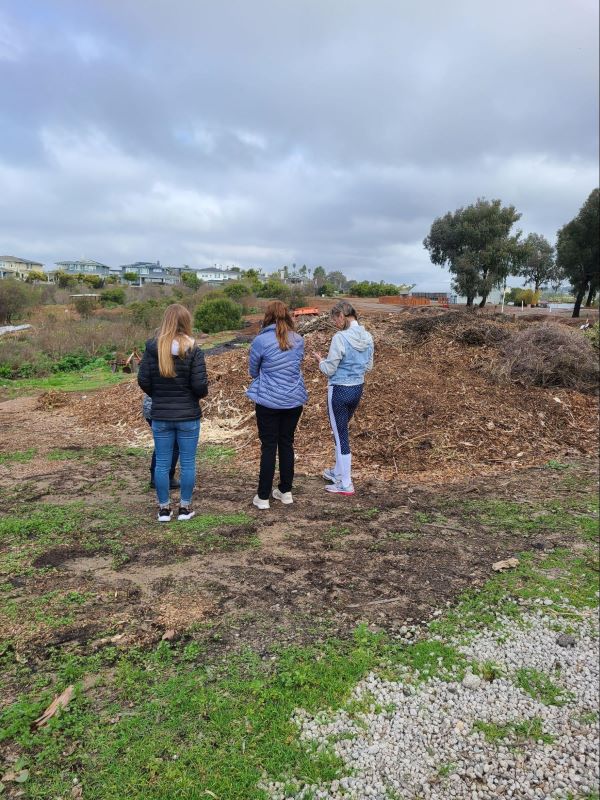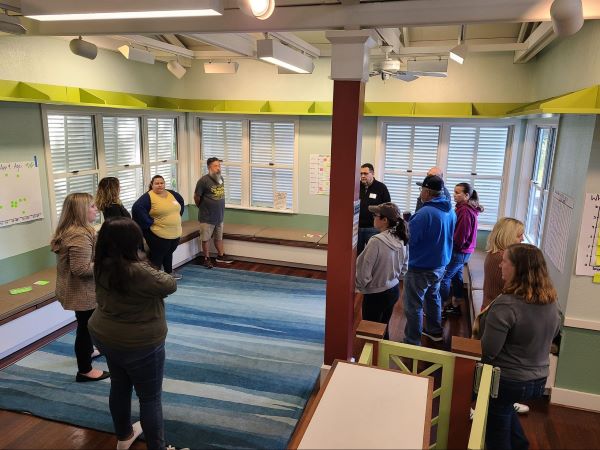Region 4 Update: Spring 2024
By Crystal Starr Howe, Region 4 Director

It is so exciting to see teachers out of their classrooms for professional learning experiences!
In Southern CA we have had the amazing opportunity to bring teachers together for science professional learning related to climate change topics. In January, TK-8 teachers came together at the Coastal Roots Farm in Encinitas to explore compost as a climate change mitigation strategy. We checked out the many ways that the Farm engages in sustainable farming practices, investigated 5 different sets of compost, and used the chemistry of aerobic and anaerobic respiration to discover why composting is a more sustainable alternative than sending food scraps to the landfill.
Additionally, middle school teachers from Orange County, Imperial County, and San Diego County have come together this winter to visit local nature spaces while diving deep into using data to help students understand the science of climate change. Using CoDap, data visualizations, and slow reveal graphs, this fabulous group of teachers is exploring how to support their students to use data to make informed decisions about their own actions at school and at home.

Southern California Association of Science Specialists!
SCASS is another opportunity to network with your fellow science leaders in Southern California. This year’s focus is Inspiration, Integration, and Innovation. Next meeting is February 29 in person at the Environmental Systems Research Institute, Inc. (ESRI) headquarters! See the SCASS site for meeting dates and registration links.
Southern California CA Science Projects have online and in person Professional Learning Opportunities!
See each project for up to date offerings:
Connect to your local Southern California County Office of Education!







